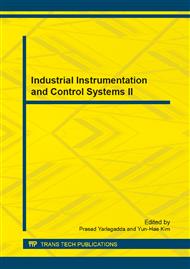p.2188
p.2195
p.2199
p.2203
p.2207
p.2213
p.2217
p.2221
p.2225
Study on Crowdsourcing-Compatible Disaster Information Management System
Abstract:
While crowdsourcing is developed as a business model, it has become a new method of information exchange under the development of mobile Internet and SNS, and promoted the method of information production and exchanging on Internet. During the processes of global huge disaster relief, mass of information released by normal people have been used and played an important role. Using crowdsourcing in disaster information collection can improve the efficiency of rescue. Based on the analysis of current status of disaster information collection and crowdsourcing model, this paper studied the crowdsourcing-compatible disaster information management system, including its content, architecture and future development direction.
Info:
Periodical:
Pages:
2207-2212
Citation:
Online since:
July 2013
Keywords:
Price:
Сopyright:
© 2013 Trans Tech Publications Ltd. All Rights Reserved
Share:
Citation:


